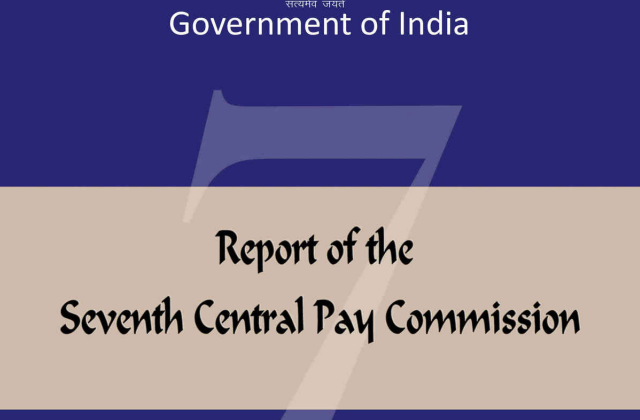

7th CPC (Central Pay Commission) High Level Overview
The 7th Pay Commission, also known as the 7th Central Pay Commission, is a panel of experts established by the Government of India to recommend changes in the salary and allowances of government employees. The commission is convened every ten years to review and make recommendations on the salary structure, pensions, and other benefits of central government employees, including defense personnel, police officers, and paramilitary forces. In this article, we will explore the history of the 7th Pay Commission, its recommendations, and the impact it has had on the lives of government employees in India.
History of the 7th Pay Commission
The 7th Pay Commission was established on 28th February 2014 by the then Indian Prime Minister Manmohan Singh. The commission was headed by Justice A.K. Mathur, a retired judge of the Supreme Court of India, and consisted of members from different backgrounds, including finance, labor, and administration. The commission was given 18 months to submit its report, which it did on 19th November 2015.
Recommendations of the 7th Pay Commission
The 7th Pay Commission made several recommendations regarding the salary and allowances of government employees. Some of the key recommendations are:
- Increase in minimum pay: The commission recommended an increase in the minimum pay of government employees from Rs. 7,000 to Rs. 18,000 per month.
- Increase in fitment factor: The commission recommended an increase in the fitment factor for calculating the pay of government employees from 2.57 to 2.72.
- Hike in allowances: The commission recommended a hike in various allowances, including house rent allowance, transport allowance, and medical allowance.
- Changes in pension structure: The commission recommended a new pension scheme for government employees, replacing the existing defined benefit scheme.
Impact of the 7th Pay Commission on Government Employees
The implementation of the recommendations of the 7th Pay Commission had a significant impact on the lives of government employees in India. The increase in minimum pay and fitment factor led to a substantial rise in the salary of government employees, resulting in improved living standards and increased spending power.
The hike in allowances, particularly the house rent allowance, was a significant relief for government employees who were struggling to make ends meet due to rising living costs. The new pension scheme recommended by the commission also provided greater security and stability to government employees, ensuring a comfortable retirement.
However, the implementation of the recommendations of the 7th Pay Commission was not without its challenges. The increase in salaries led to a substantial rise in government expenditure, which had to be managed carefully to avoid an adverse impact on the economy. The government had to balance the interests of government employees with the need to maintain fiscal discipline, resulting in delays and modifications in the implementation of some of the commission’s recommendations.
Frequently Asked Questions (FAQs) of 7th CPC
Q1. When was the 7th Pay Commission established?
A1. The 7th Pay Commission was established on 28th February 2014.
Q2. Who headed the 7th Pay Commission?
A2. The 7th Pay Commission was headed by Justice A.K. Mathur, a retired judge of the Supreme Court of India.
Q3. What was the recommendation of the 7th Pay Commission regarding the minimum pay of government employees?
A3. The commission recommended an increase in the minimum pay of government employees from Rs. 7,000 to Rs. 18,000 per month.
Q4. What was the impact of the 7th Pay Commission on government employees in India?
A4. The implementation of the recommendations of the 7th Pay
Hi, this is a comment.
To get started with moderating, editing, and deleting comments, please visit the Comments screen in the dashboard.
Commenter avatars come from Gravatar.